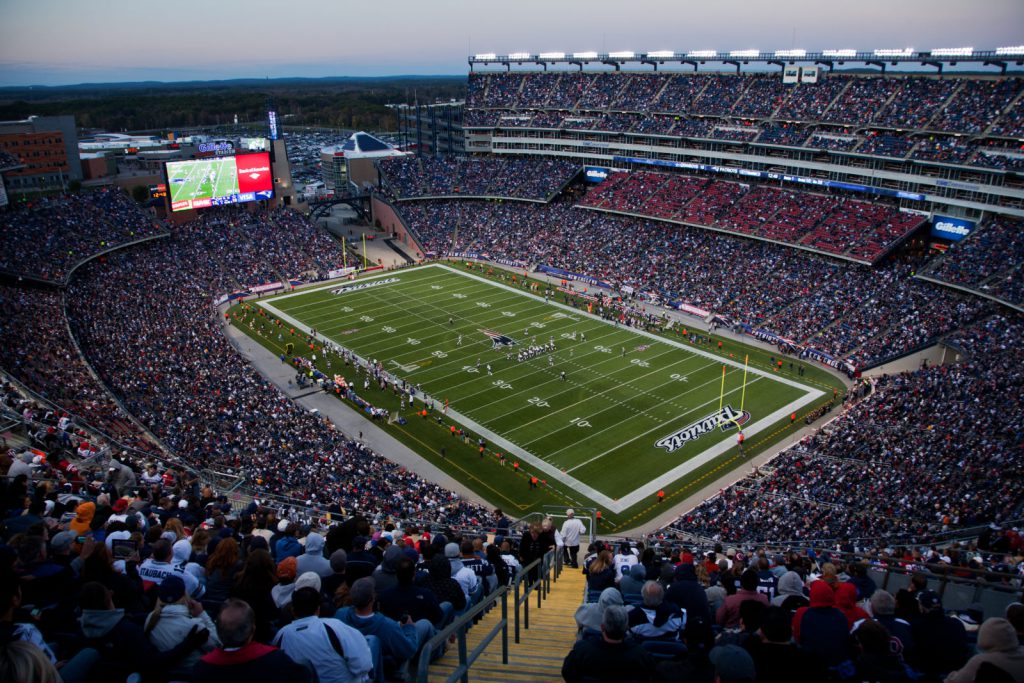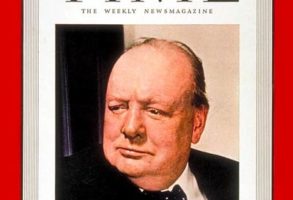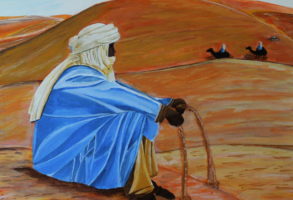
Published October 10, 2017
One aspect of the controversy surrounding NFL players’ national-anthem protests has been ignored: Taking a knee ought to be seen, in some larger framework, as a violation of the principle of separation of church and state. The problem is metaphysical, not legal or political. But the metaphysics has already resulted in real consequences — for fans, the NFL, the players themselves, and our already divisive politics.
Watching almost any sport, if it is played well and understood with knowledge, brings pleasure. Each game is a spontaneous story, unfolding in the expectation that something extraordinary might happen. A magic of improvisation releases endorphins in the body and (at best) elevates something in the spirit of athletes and spectators alike. Now and then the result is awe — a kind of enchantment.
When I was a boy I saw Ted Williams play. The image of his swing, a thing of pure beauty — pure act! — is with me a lifetime later. It has a quality of the privately sacred, as such memories may — a glimpse of the perfect, tucked away in my mind sometime in the Eisenhower administration. I have forgotten a trillion things in my life, but not that. Why is that frozen instant indelible, precious to me?
In another memory, Michael Jordan floats forever through the air toward the basket, in the way that we float in dreams.
Or this: I am in Tokyo — jet-lagged, up night after night from midnight to 6 a.m., too tired to read or think or sleep. I watch hours of sumo wrestling on Japanese television: At first, I’m fascinated, incredulous, and amused to see two hippos in a shoving match, interpreted in an unintelligible language. But as I study the enormous men in Tokugawa briefs, I begin to enter into another dimension, to see into the alien rituals and aesthetics and physics of their timing, their subtleties of shifted weight, their stillness and sudden, electrical violence. They are masses of flesh and breath strangely and delicately managed. It becomes an amazing, improbable dance, perfected in another world.
All games at their best have a metaphysics. In the fall of 1967, as my 17-year-old brother Mike was dying of cancer, I took him to Shea Stadium to watch Joe Namath play against the Dolphins. Joe Willy was perfect that day, as if he meant to bestow upon poor Mike the gift of a sequence of perfect instants: passes short and long, all of them precise and beautiful. One pass arced high above the field and floated forever before landing softly in the receiver’s fingers for a touchdown 60 yards downfield. Mike for that afternoon forgot about dying and looked at me with an expression of excitement and wonder. The perfect floating pass from Namath and the expression on Mike’s face — both images bound together like binary stars — remain with me in that part of my mind that I think of as the church — a sanctuary.
It’s only that mystic dimension that makes games worth watching, and worth paying to watch — that opens them up to a possibility of things unexpected and gladdening and extraordinary, of life heightened by remarkable deeds.
When NFL players drop to one knee and bow their heads during the national anthem, an obscure deflation occurs: The gesture shatters the fourth wall a little, enough to break the spell. It introduces another subject altogether, a different storyline.
Such displays sacrifice the dimension of the game that gives it life — and, by the way, monetary value. They make the game banal. They sabotage the art — a higher art, in its transcendence — and drag it to earth, to politics and grievance. That’s the effect, anyway, regardless of the higher ideals that are professed.
No, no, Kaepernick et al. reply — what we are doing is the truly sacred work. This is about more than politics. It is precisely about the higher things, about social justice and injustice, the history of American racism, the legacy of slavery. These matters belong to the true church in our minds, if not in yours. And anyway, who are you kidding? Football is not mystical; it is about violence and concussions and brain damage and venality.
You may say so. You may be right, on a lower plane of truth. But you are making a bad trade. You are playing a game you do not understand, and you may find that all of that physical violence is ultimately about metaphysics after all.
The gesture of taking a knee, and the controversy that comes with it, works, unbidden, to effect a chemical change in the fan’s mind — any fan’s mind, regardless of race or politics. It subtly changes the conscious and subconscious mind — not on the subject of race and social justice, as the players intend, but instead, on the unexpectedly fragile experience of the game itself, which in this new light tends to lose meaning and mystique. The mind swivels away. The life goes out of it. The fan now looks at the game a little coldly, as if it had become a stranger to him, and wonders why he ever fell in love with it.
For, as intended, the kneeling has forced me into an internal argument, pro and con, about the treatment that blacks receive in the American justice system, about the answering arguments made by police faced with such charges, and so on. I acknowledge a point in the realm of social justice — and grant in any case that the players enjoy the right of free speech.
Grievance and accusation. The overworked conscience frets and squirms through another Sunday of an ignoble year. What I sought was temporary relief from argument and stupidity. But there is no refuge.
The players do not grasp this. When they kneel, the gods depart. And after the gods, the fans — or, in any case, the capacity for awe that was the reason the fans came to the game in the days when they were in love with it.
They will find other ways to keep the Sabbath. But this minor phenomenon of desacralization is typical of the age. The old King is dead and mystique is dead, and we live in the reign of Goneril and Regan.
— Lance Morrow is the Henry Grunwald Senior Fellow at the Ethics and Public Policy Center.








